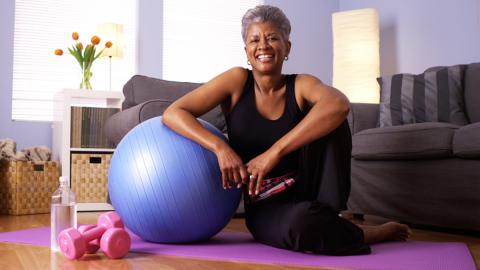Older people commonly incur injuries after falls and, are more likely to have osteoporosis. Osteoporosis weakens the bones, increasing the likelihood of breaks and fractures after falls.
On this page:

What is a fragility fracture?
Fragile bones are more likely to break. This is known as a fragility fracture. They happen when you fall over doing normal activities, such as making the bed.
Hip, arm, back and wrist fractures are the most common type. If you break a bone when you fall from a height of about six feet or less, it may be a sign that your bones are weak.
What causes fragility fractures?
People who have a fragility fracture often have weak bones due to osteoporosis. After the age of 35, bone loss slowly increases making bones weaker.
This is part of the natural ageing process. Bone loss is faster in women for several years following the menopause. So older people, especially women, are more at risk.
If one of your parents broke a hip, you may be more likely to develop osteoporosis and fragile bones. Other risk factors include smoking, drinking more than three units of alcohol a day and not being active.
Getting older does not have to mean you are more likely to fall. If you are concerned about falling, see your GP who can refer you to health professionals, including physios, who can help.
How can physiotherapy help?
Well-designed exercise programmes involving strength, balance and functional exercises reduce falls when delivered in both group and home-based settings.
Physiotherapists are well placed to support people with complex health problems to engage in an individualised programme that is adapted to the right intensity, includes supervision if required, and is enjoyable.
A physiotherapist can help you improve your balance to reduce the risk of falling. This can help to make you feel more confident about going out and about.
Physios can also help you strengthen your bones. Bone is a living tissue that can be improved through some types of exercise. A physio can advise you on activities to suit your needs.
What will happen when I see a physiotherapist?
When you see a physio, they will assess you and give you advice. They may give you a physical treatment or refer you to a strength and balance class.
Everything you tell the physio will be completely confidential. So that your physio can have a good look at how you move, they may need you to remove some clothes. It’s a good idea to dress comfortably and wear suitable underwear.
What should I expect from physiotherapy?
Strength and balance training is recommended for all older people but especially those with a history of falls or balance and gait deficit.
These exercise programmes must comprise a minimum dosage of 50 hours, delivered for at least two hours per week, for a minimum of six months. This should be individually prescribed and monitored by an appropriately trained professional.
If you are an older people in contact with healthcare professionals, then you should be asked routinely whether they have fallen in the past year and asked about the frequency, context and characteristics of the fall.
If you've received medical attention because of a fall, or report recurrent falls in the past year, or demonstrate abnormalities of gait and/or balance, then you should be offered a falls risk assessment.
This assessment should be performed by a healthcare professional with appropriate skills and experience, normally in the setting of a specialist falls service.
How can I help myself?
If you have had a fall, it is important to take action to prevent yourself having another one. Physiotherapy can help.
Weight bearing exercise, such as walking or dancing, can help to strengthen your bones. Weight bearing exercise is any exercise in which you are supporting your own body weight through your feet and legs (or arms and hands). Exercises to improve your balance can also help.
If you have had a fall or a fracture, check with your GP or a physio about what types of exercise would be suitable. This might include exercise in water (at your local swimming pool, perhaps) as the water takes some of your body weight.
Eat a healthy diet with plenty of calcium and get outside in the sunlight, which boosts your vitamin D. Both calcium and vitamin D are essential for strong bones.
Who can I go to for help?
Your local physio, GP or pharmacist can all help you
Top tips to prevent falls and recover from fractures
- If you are worried about falling, use chair-based exercises until you feel confident enough to stand
- Exercise to strengthen bones needs to be weight bearing but add exercises to improve your balance and strength as well
- Join a physio-led strength and balance class if possible
- If you have had a fragility fracture discuss bone health with your doctor
- Follow a healthy diet that includes enough calcium and vitamin D
- Wear sensible, well-fitting shoes to avoid falls
- Avoid rugs and sloppy slippers – both can cause trips
- Have good lighting on your stairs
- Have your eyesight checked regularly (free if you are over 60)
- Try not to carry too much – consider home delivery grocery shopping
Links and further information
- NHS Choices offers practical advice on falls and prevention: NHS Choices
- The Centre for Molecular Medicine offers a calculator for calcium and strong bones: Calcium Calculator
- Age UK sell personal safety alarms to attract help in case of falls: Age UK
Disclaimer
The content on this page is provided for general information purposes only and is not meant to replace a physiotherapy or medical consultation. The CSP is not responsible for the content of any external sites, nor should selection be seen as an endorsement of them.


